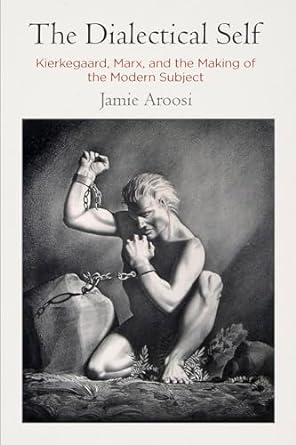
The Dialectical Self
By
2.16.24 |
Symposium Introduction
Panelists
Tyler Davis
Cyril O’Regan
Bartholomew Ryan
Marcia Morgan
Alison Assiter
Overview
Although Karl Marx and Søren Kierkegaard are both major figures in nineteenth-century Western thought, they are rarely considered in the same conversation. Marx is the great radical economic theorist, the prophet of communist revolution who famously claimed religion was the “opiate of the masses.” Kierkegaard is the renowned defender of Christian piety, a forerunner of existentialism, and a critic of mass politics who challenged us to become “the single individual.” But by drawing out important themes bequeathed them by their shared predecessor G. W. F. Hegel, Jamie Aroosi shows how they were engaged in parallel projects of making sense of the modern, “dialectical” self, as it realizes itself through a process of social, economic, political, and religious emancipation.
In The Dialectical Self, Aroosi illustrates that what is traditionally viewed as opposition is actually a complementary one-sidedness, born of the fact that Marx and Kierkegaard differently imagined the impediments to the self’s appropriation of freedom. Specifically, Kierkegaard’s concern with the psychological and spiritual nature of the self reflected his belief that the primary impediments to freedom reside in subjectivity, such as in our willing conformity to social norms. Conversely, Marx’s concern with the sociopolitical nature of the self reflected his belief that the primary impediments to freedom reside in the objective world, such as in the exploitation of the economic system. However, according to Aroosi, each thinker represents one half of a larger picture of freedom and selfhood, because the subjective and objective impediments to freedom serve to reinforce one another.
By synthesizing the writing of these two diametrically opposed figures, Aroosi demonstrates the importance of envisioning emancipation as a subjective, psychological, and spiritual process as well as an objective, sociopolitical, and economic one. The Dialectical Self attests to the importance and continued relevance of Marx and Kierkegaard for the modern imagination.
Reviews and Endorsements

